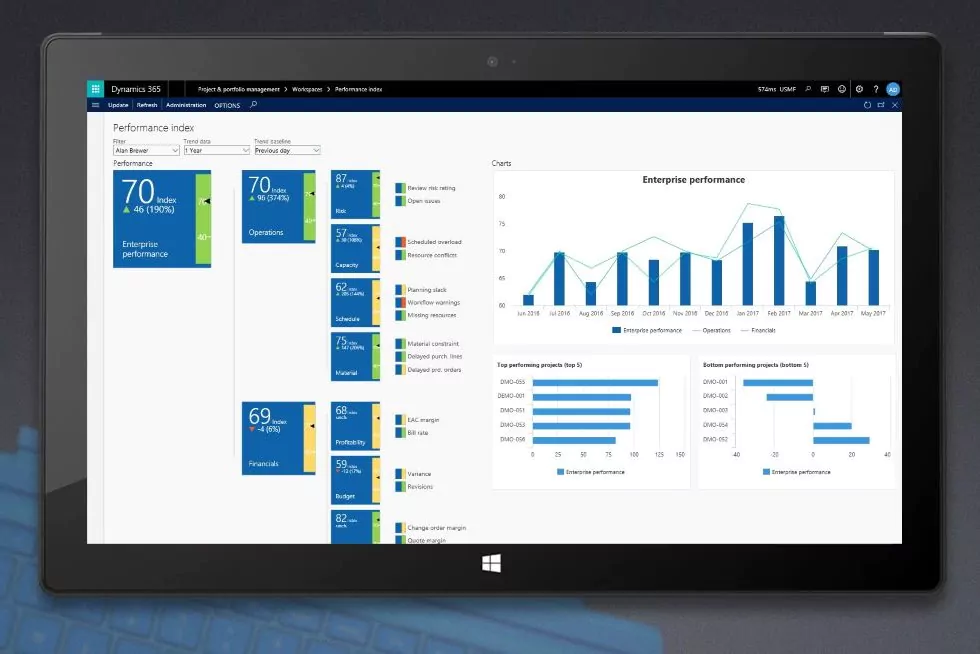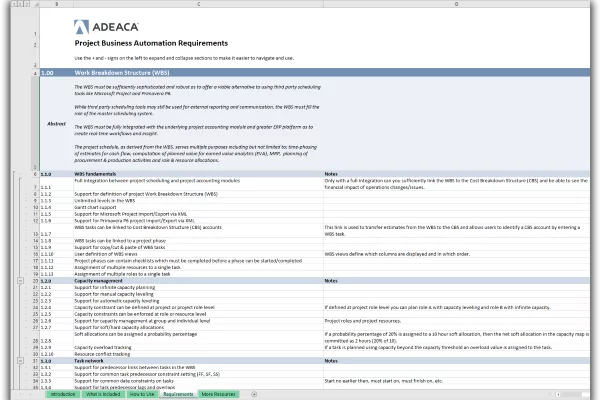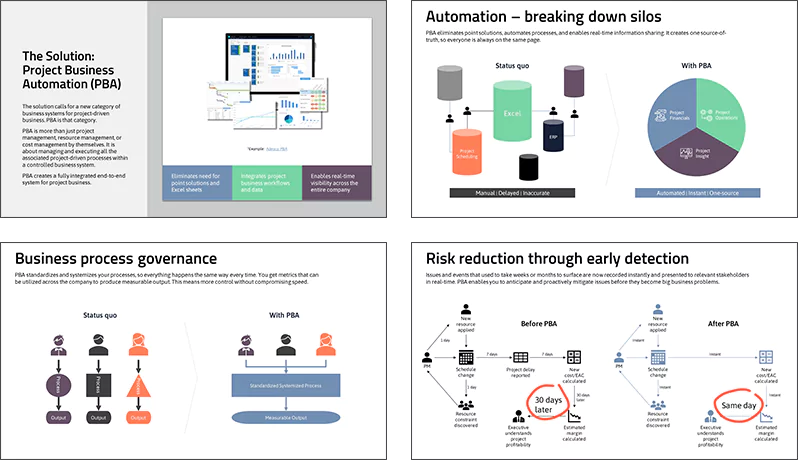A Project Management System is a technology solution that manages the processes and data for completing complex projects. More than just project management software, project management systems incorporate a framework of business processes involved in managing projects. In this way it is similar to project business systems, though not as comprehensive.
A Project Management System is different than a Project Management Information System or PMIS. The PMIS manages information, while the PMS manages projects tactically.
Capabilities of Project Management Systems
Project Management Systems can incorporate many different features. Here some of the core capabilities they may include:
Task and Schedule Management:
Project Management Systems facilitate the creation and organization of tasks and schedules, ensuring a structured workflow.
Resource Allocation:
Efficiently allocate resources to tasks, preventing bottlenecks and optimizing workforce productivity.
Budgeting and Cost Control:
Enable the creation and monitoring of project budgets, ensuring that costs are controlled and aligned with financial goals.
Risk Management:
Identify, assess, and mitigate project risks, ensuring proactive risk management throughout the project lifecycle.
Examples of Project Management Systems
Several robust Project Management Systems exist, catering to diverse business needs. Examples include:
Adeaca Project Business Automation: Although PBA is a Project Business System, it incorporates many of the Project Management System features. PBA includes many additional capabilities and provides a larger framework for managing project with an enterprise context.
Check out this list of the best project management systems.
Microsoft Project: A widely used project management tool with a focus on scheduling and task management.
Jira: Particularly popular in software development, Jira is known for its agile project management capabilities.
Asana: A versatile project management system emphasizing collaboration and task tracking.
Project Business Automation (PBA) is a comprehensive business system for project-driven organizations. Learn more: Download the PBA Quick Guide now.
Project Management System vs Project Management Software or Tool
While the terms are often used interchangeably, there is a distinction. A Project Management System is a holistic solution that encompasses tools and software for end-to-end project management. It integrates various project management tools into a unified platform, providing a comprehensive approach.
In contrast, Project Management Software or Tools are individual applications that cater to specific aspects of project management, such as scheduling, communication, or document management.
Advantages of Project Management Systems
Efficiency:
Streamline project workflows, reducing manual efforts and enhancing overall efficiency.
Collaboration:
Facilitate seamless collaboration among team members, fostering improved communication and knowledge sharing.
Data-Driven Decisions:
Provide real-time insights into project performance, empowering stakeholders to make informed decisions promptly.
Cost Control:
Enable effective budgeting and cost management, reducing the risk of overruns.
The Difference Between Project Management and Project Business Systems
While Project Management Systems focus on the tactical execution of individual projects, Project Business Systems take a broader view. They integrate business and project aspects seamlessly, aligning project activities with overall business needs. Project Business Systems, such as Project Business Automation, not only manage projects efficiently but also govern project processes end-to-end throughout the project lifecycle, providing transparency and control across the project business to executives.
In conclusion, a robust Project Management System is a cornerstone for successful project delivery. As businesses evolve, the integration of Project Business Systems becomes essential, providing a unified approach to manage both individual projects and the broader business landscape.













